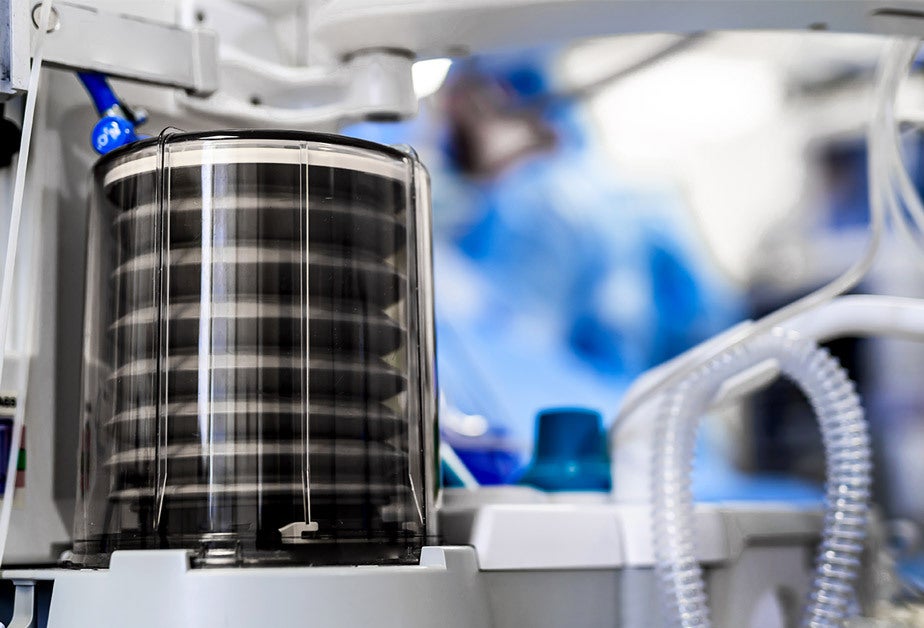COVID-19 has put strain on the medical system, and tools for combating the virus are running scarce. Manufacturers are being asked to begin producing emergency medical equipment, including face masks and ventilators. But do they have the data or understanding of their new supply chain to capitalize on these opportunities effectively?
Many companies are evaluating their capability to manufacture high-demand medical devices. An example can be seen in luxury goods manufacturer LVMH Moët Hennessy – Louis Vuitton SE, which adapted their operations to produce hand sanitizer.
However, the medical devices industry has stringent manufacturing standards, and safe production is a process driven, data-heavy task. Even if your company already operates within the industry and understands the requirements, building from a new set of specifications and meeting efficacy standards is an unpredictable data burden.
Many companies are already facing compliance challenges they hadn’t accounted for. Failing to approach supply chain data proactively can lead to batches of products that ultimately can’t be used by medical professionals, wasting important components required to produce life saving products.
Here are five steps to transforming your supply chain to build safe, compliant medical devices products:
1. Define your new product’s materials.
Regardless of what you’re building, your first task will be to define the product’s composition. There are resources available to help you build a compliant bill of materials (BOM) hierarchy quickly, including Medtronic plc’s Mechanical Ventilator product specifications.
If you identify any substitute parts in your existing supply chain, check their technical files to ensure they meet more stringent medical devices industry standards, such as the European Union (EU) Medical Device Regulation (MDR), Restriction of Hazardous Substances (RoHS) Directive and the Registration, Evaluation, Authorisation and Restriction of Chemicals (REACH) Regulation.
2. Find the right suppliers.
If your company manufactures similar products, you could already have much of the data and quality systems you need to review suppliers. However, it’s inevitable you will need to create new business relationships to complete your assembly.
Some suppliers may also be disrupted due to work stoppages and trading bottlenecks. New best practices are to deploy a technology solution that can simultaneously navigate geographical, human rights, trade and logistical landscapes to find compliant materials, and alert you to potential supply disruptions before they halt production.
3. Check the data.
Before you begin manufacturing, validate and verify all product and supplier-level data, performing product testing wherever possible. Platform technology can help here by cross-checking information from disparate sources, identifying inconsistency in results, and automating follow ups with suppliers that haven’t provided the data you need.
4. Review your operations.
Your manufacturing operations must meet new industry standards as well. From due diligence on process substances to the composition of new casings and equipment, data can quickly show that your operations are compliant with safety requirements. This step is critical to ensure your assemblies are safe and functional for both the operators and patients they come into contact with.
5. Ship your products.
Once your new products have been manufactured, you’ll be ready to ship. Maintaining accurate, complete technical files on your product will enable you to quickly respond to data requests and show they are safe for use. Performing due diligence in advance of shipping goods will also avoid product delay and potential rejection, which in turn will help the products get to front lines quickly, where they can save lives.
Data Automation Technology & Transparent Supply Chains
Companies with more transparent supply chains and access to a database of compliant parts can expedite each of these steps and facilitate the transition of their operations to build safe medical devices. Platform technology and access to industry best practices can help you:
- Pre-qualify compliant parts, materials and suppliers.
- Automate follow ups and surveys for incomplete or missing data.
- Collect data using formats streamlined for the medical devices industry.
- Share data with new and existing business units and partners.
Performing these operations effectively will help you deliver safe products to their destination quickly and efficiently.
As a company already exchanging data with the world’s largest medical devices manufacturers, Assent is uniquely positioned to support you in identifying compliant parts, suppliers and processes to meet the surging global demand for medical equipment.
For more information about how Assent can help you transform your supply chain quickly, or anything related to supply chain data management, contact our experts today.









